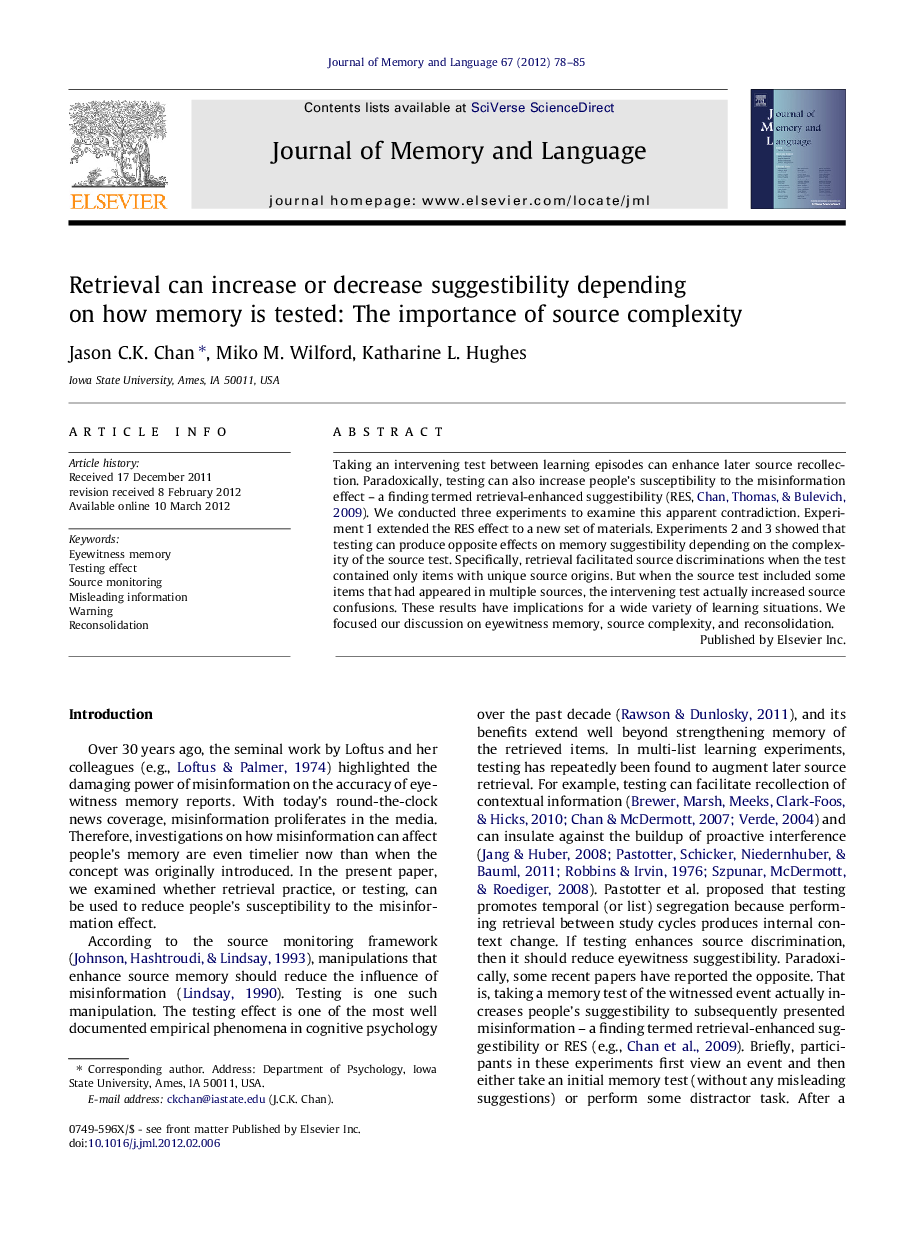| Article ID | Journal | Published Year | Pages | File Type |
|---|---|---|---|---|
| 932018 | Journal of Memory and Language | 2012 | 8 Pages |
Taking an intervening test between learning episodes can enhance later source recollection. Paradoxically, testing can also increase people’s susceptibility to the misinformation effect – a finding termed retrieval-enhanced suggestibility (RES, Chan, Thomas, & Bulevich, 2009). We conducted three experiments to examine this apparent contradiction. Experiment 1 extended the RES effect to a new set of materials. Experiments 2 and 3 showed that testing can produce opposite effects on memory suggestibility depending on the complexity of the source test. Specifically, retrieval facilitated source discriminations when the test contained only items with unique source origins. But when the source test included some items that had appeared in multiple sources, the intervening test actually increased source confusions. These results have implications for a wide variety of learning situations. We focused our discussion on eyewitness memory, source complexity, and reconsolidation.
► Testing can increase eyewitness suggestibility. ► We extended this effect to a new set of materials. ► We found that RES persists even when people are given a source recognition test. ► When the test included only items with unique source origins, testing enhanced source memory. ► The influence of testing on source monitoring depends on the complexity of the source test.
